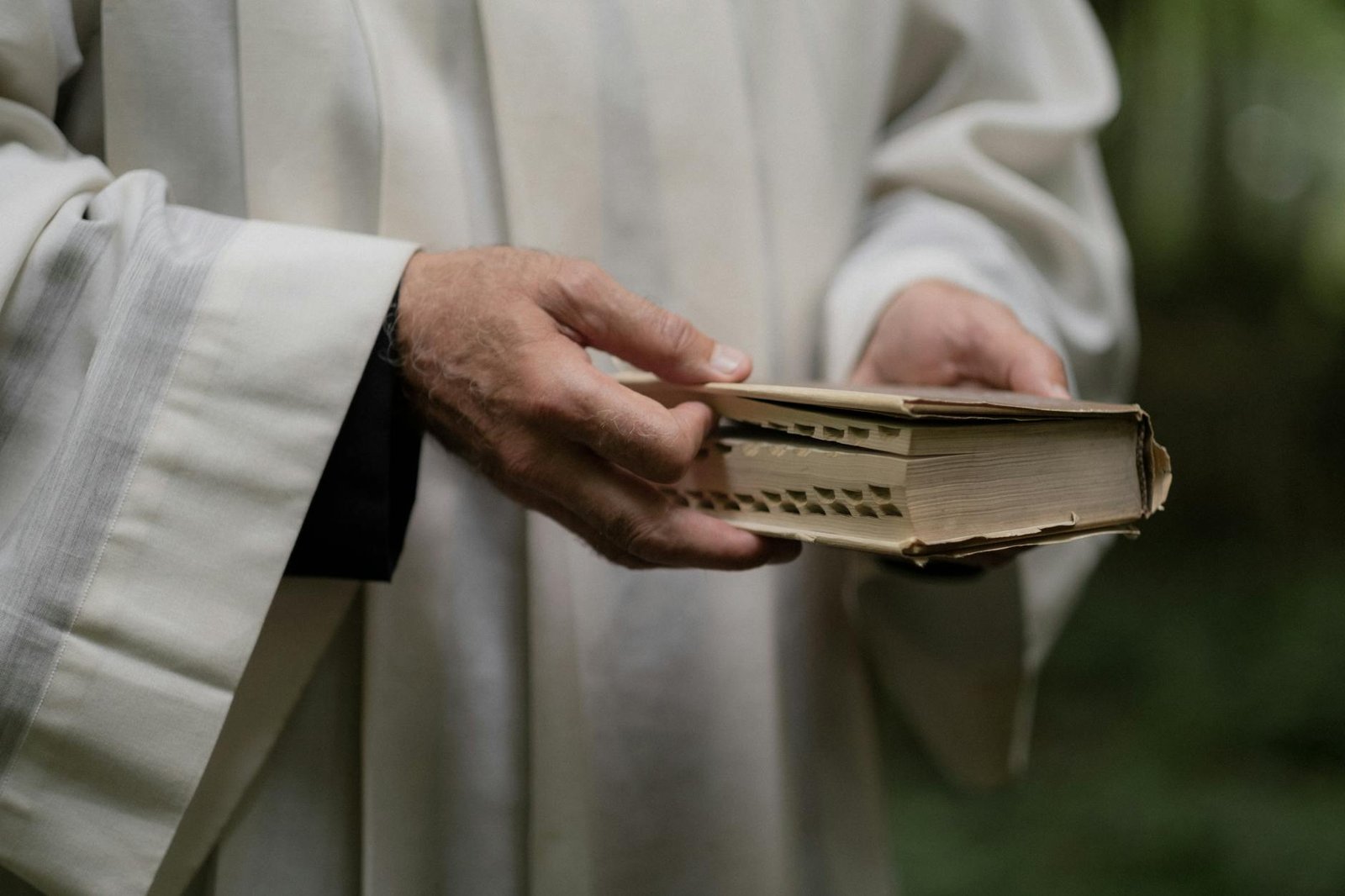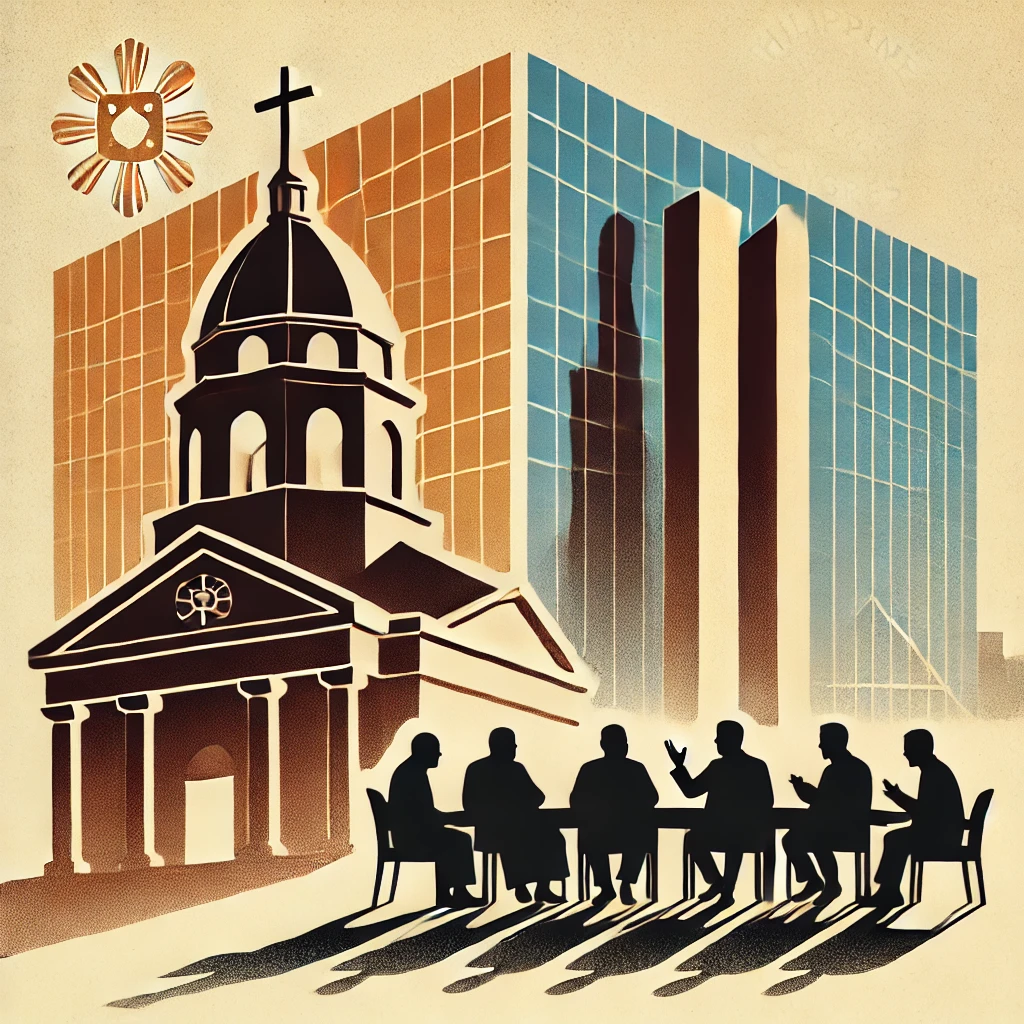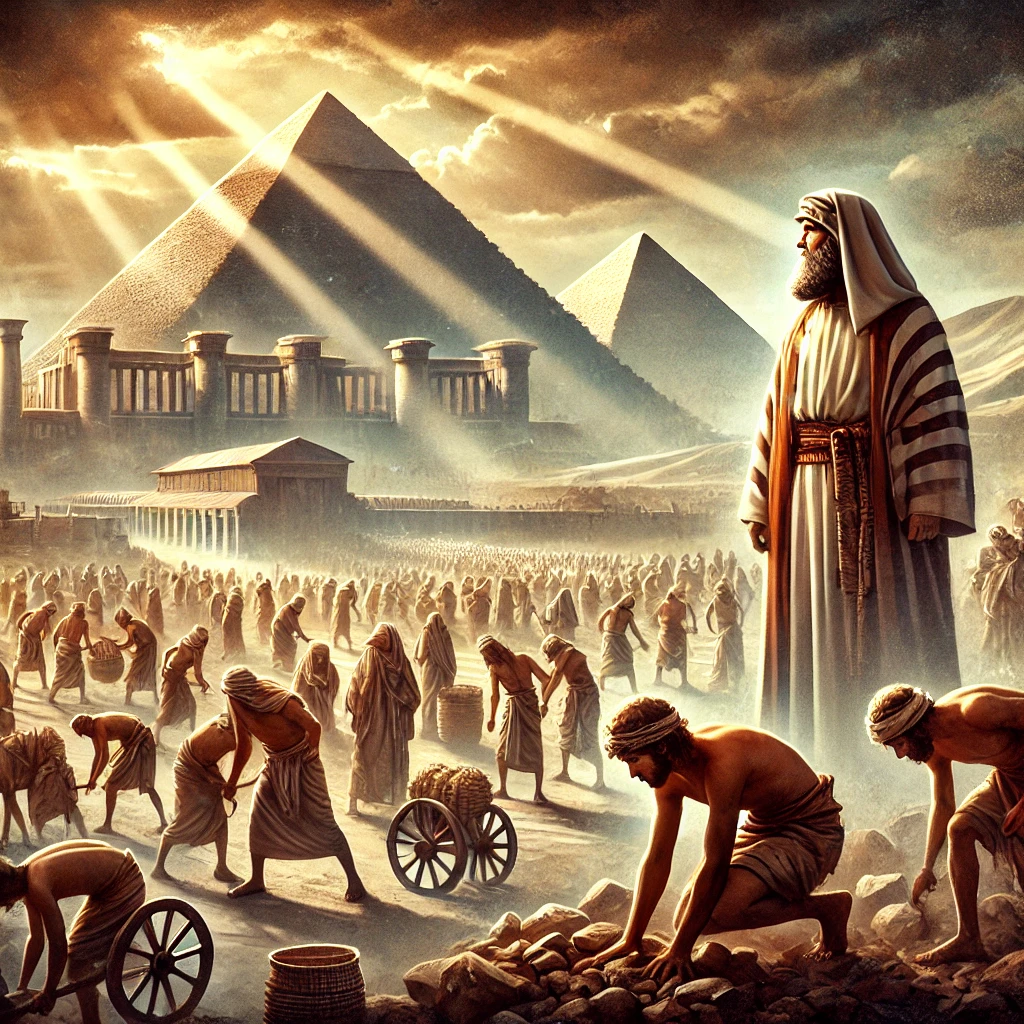Theological Insights: Understanding Salvation in the Wesleyan Tradition
Introduction to the Wesleyan Perspective on Salvation The Wesleyan tradition, rooted in the teachings of John Wesley in the 18th century, offers a distinct and nuanced understanding of salvation that…
Read moreThe Long-Term Effects of Missile Airstrikes on Global Climate Change
Introduction to Airstrikes and Their Impact Missile airstrikes represent a significant form of military intervention, often employed to achieve strategic objectives during conflicts. These airstrikes involve the use of missiles…
Read moreThe Peril of Excessive Indulgence in Grace: Understanding Its True Worth
Grace is a multifaceted concept deeply rooted in various theological frameworks, often regarded as a divine favor bestowed upon individuals. It is central to the teachings of many religious traditions, particularly in Christianity, where it signifies God’s unconditional love and mercy toward humanity.
Read moreThe Evolving Role of Contemporary Praise and Worship in Liturgical Tradition
Introduction to Contemporary Praise and Worship Contemporary praise and worship can be defined as a modern approach to expressing faith through music, song, and communal gatherings within the Christian church.…
Read moreDon’t Take Your Christian Spirituality Complacently: Living a Life of Purpose and Testimony
Understanding Complacency in Spirituality Complacency in the context of Christian spirituality can be understood as a state of self-satisfaction or the belief that one’s spiritual condition is adequate without the…
Read moreThe Socio-Theological Implications of Matthew 5:9: Embracing the Call to Peacemaking
Introduction to Matthew 5:9 Matthew 5:9 is a significant passage within the Sermon on the Mount, an essential segment of Jesus’ teachings that addresses the fundamental ethics of the Christian…
Read moreThe Rise of Social Media Mendicancy: Understanding the Trend of Digital Begging for Followership
Introduction to Social Media Mendicancy Social media mendicancy refers to the practice of soliciting followers and financial support through various social media platforms. This trend encompasses a broad spectrum of…
Read moreEmbracing Simplicity: A Path to a Fulfilled Life in Mid 2025
Introduction to Simplicity in Mid 2025 As we approach mid-2025, the notion of simplicity in our daily lives is gaining renewed attention. Modernity often bombards us with complexities, from intricate…
Read moreStop Raising an Egoistic Church: Let Giving Remain Sacred
In our modern church culture, there’s an alarming trend that needs to be addressed: the public announcement of giving. Whether it’s tithes, offerings, building pledges, or benevolence funds, there’s a growing tendency to highlight who gave what — and how much. While some may argue it encourages generosity, the truth is it can just as easily breed pride, insecurity, and unhealthy comparison within the body of Christ.
Read moreJUSTIFYING GRACE IN WESLEYAN THEOLOGY: SIGNIFICANCE, IMPLICATIONS, AND CONTRASTS WITH ALTERNATIVE PERSPECTIVES
Justifying grace is a central concept in Wesleyan theology, encapsulating the transformative experience that occurs when individuals are reconciled with God through faith in Jesus Christ. Defined as the little-deserved favor of God granted to sinners, justifying grace means not only the forgiveness of sin but also the declaration of justice before God.
Read morePREVENIENT GRACE UNVEILED: THEOLOGICAL IMPLICATIONS AND SCRIPTURAL FOUNDATIONS IN CONTEMPORARY CHRISTIAN DISCOURSE ON FREE WILL AND DIVINE GRACE
In Wesleyan theology, prevenient grace occupies a fundamental position as the divine initiative that extends grace to humanity before any acceptance or conscious decision regarding salvation. This concept, deeply rooted in the writings of John Wesley, encapsulates the belief that God’s grace is not limited to the moments of conversion. Nevertheless, it pervades the totality of human existence, acting as a preparatory force that permeates the lives of all individuals.
Read morePROFITS OVER PUBLIC GOOD: THE BUSINESS OF POLITICS IN THEPHILIPPINES
The Filipino political landscape is characterized by a complex interaction of dynamics of
power, social issues, and economic interests, which together create an environment in which the
public service often brings a seat for effort. The nation, with its distinct historical context of
colonialism and ongoing struggles with various forms of governance, presents a unique case for
the examination of political priorities.
The Inner Self-Lawyer in: The Unsolicited Ideas of the Masses
Filipinos are deeply interpretative by nature. With the rise of social media, opinions and judgments are formed in an instant—sometimes without considering the full context of an issue. This phenomenon creates an atmosphere where everyone feels like a lawyer, a judge, and even an executioner, interpreting events and controversies based on their own perspective. But what happens when these interpretations are based on partial truths or manipulated narratives?
Read moreThe Resilient Filipino: Battered but Never Defeated
Filipinos have endured centuries of hardship, from Spanish colonization to the oppressive rule of other foreign powers. Despite these challenges, they never lost their identity or will to fight. The Philippine Revolution of 1896 stands as a testament to this resilience, as Filipinos, despite being outgunned and outnumbered, rose against colonial rule.
Read moreWearing the Pastoral Robe: The Yoke of Christ and the Burden of Absolution
The pastoral robe is more than a garment; it is a symbol of a divine calling, a visible sign of an invisible grace. To wear it is to step into the footsteps of Christ, to take on His yoke, and to embrace the suffering that comes with it. The robe does not merely clothe the body—it binds the soul to a life of sacrifice, intercession, and absolution.
Read moreWhy Do Liars Persist? The Enduring Success of Deception in Politics and Religion
Lies are as old as human civilization, yet they seem to thrive more than ever in politics, religion, and society. Why do liars persist and even succeed? Why do some people deceive so effortlessly, without hesitation or remorse? The answer lies in a mix of psychology, social structures, and human nature itself.
Read moreRespect Is Not an Alternative—It’s the Foundation of Healthy Social Development
One fundamental value remains the key to social harmony: respect. It is not an alternative, nor is it a choice that can be conveniently ignored. Respect is an essential pillar of human interaction, the glue that holds relationships together, and the foundation for personal and societal growth.
Read moreThe Divisive Role of Politics in Philippine Christian Churches
The Christian churches in the Philippines have long played a significant role in shaping society, advocating for social justice, and guiding moral values. However, in recent years, political divisions have increasingly fractured religious communities, creating an environment where ideological differences often overshadow faith and unity. This division, sometimes bordering on fanaticism, has led to an atmosphere of condemnation, where differing political views result in hostility rather than understanding.
Read moreThe Toothless Justice System of the Philippines: How Politics Has Rendered It Useless
The justice system in the Philippines has lost its ability to function independently. It no longer bites, nor does it even chew—it simply swallows whatever those in power feed it. The judiciary, meant to be a pillar of democracy, has been reduced to a puppet, manipulated by the whims of politicians rather than upholding the law.
Read moreThe Danger of Democratic Spaces Like Social Media in the Philippine Context
In the Philippines, social media has become an essential part of daily life. From political discussions to social movements, it serves as a digital public square where Filipinos freely express their opinions. However, while social media fosters democracy, it has also become a battleground of misinformation, division, and hostility, weakening the unity of the nation.
Read moreEven God Supported Tyrants to Wake Up His People
Throughout history, tyranny has often been seen as a tool of divine judgment. The Bible provides multiple instances where God allowed oppressive rulers to reign as a means of awakening His people from complacency and disobedience.
Read moreShamelessness: A Socio-Cultural Attitude of the Faithless
Shamelessness, understood as a disregard for moral restraint and societal norms, has become a defining trait of modern secular culture. As faith-based ethics decline, behaviors that were once considered disgraceful are now not only tolerated but often celebrated.
Read moreThe Mendicancy Mentality: Analyzing Filipino Politicians and Monetary Corruption in Government Treasury
To choose those who have the heart to really serve for the betterment of the Filipino is a great challenge. Who among them (political candidates) has this genuine intention to…
Read moreThe Missiological Implications of Itinerancy in the United Methodist Church
There is a missiological impact of itinerancy. UMC tradition believed that clergy are sent through the power of the Bishop.
Read more
 The Peril of Excessive Indulgence in Grace: Understanding Its True Worth
The Peril of Excessive Indulgence in Grace: Understanding Its True Worth The Rise of Social Media Mendicancy: Understanding the Trend of Digital Begging for Followership
The Rise of Social Media Mendicancy: Understanding the Trend of Digital Begging for Followership Stop Raising an Egoistic Church: Let Giving Remain Sacred
Stop Raising an Egoistic Church: Let Giving Remain Sacred JUSTIFYING GRACE IN WESLEYAN THEOLOGY: SIGNIFICANCE, IMPLICATIONS, AND CONTRASTS WITH ALTERNATIVE PERSPECTIVES
JUSTIFYING GRACE IN WESLEYAN THEOLOGY: SIGNIFICANCE, IMPLICATIONS, AND CONTRASTS WITH ALTERNATIVE PERSPECTIVES PREVENIENT GRACE UNVEILED: THEOLOGICAL IMPLICATIONS AND SCRIPTURAL FOUNDATIONS IN CONTEMPORARY CHRISTIAN DISCOURSE ON FREE WILL AND DIVINE GRACE
PREVENIENT GRACE UNVEILED: THEOLOGICAL IMPLICATIONS AND SCRIPTURAL FOUNDATIONS IN CONTEMPORARY CHRISTIAN DISCOURSE ON FREE WILL AND DIVINE GRACE PROFITS OVER PUBLIC GOOD: THE BUSINESS OF POLITICS IN THEPHILIPPINES
PROFITS OVER PUBLIC GOOD: THE BUSINESS OF POLITICS IN THEPHILIPPINES The Inner Self-Lawyer in: The Unsolicited Ideas of the Masses
The Inner Self-Lawyer in: The Unsolicited Ideas of the Masses The Resilient Filipino: Battered but Never Defeated
The Resilient Filipino: Battered but Never Defeated Wearing the Pastoral Robe: The Yoke of Christ and the Burden of Absolution
Wearing the Pastoral Robe: The Yoke of Christ and the Burden of Absolution Why Do Liars Persist? The Enduring Success of Deception in Politics and Religion
Why Do Liars Persist? The Enduring Success of Deception in Politics and Religion Respect Is Not an Alternative—It’s the Foundation of Healthy Social Development
Respect Is Not an Alternative—It’s the Foundation of Healthy Social Development The Divisive Role of Politics in Philippine Christian Churches
The Divisive Role of Politics in Philippine Christian Churches The Toothless Justice System of the Philippines: How Politics Has Rendered It Useless
The Toothless Justice System of the Philippines: How Politics Has Rendered It Useless The Danger of Democratic Spaces Like Social Media in the Philippine Context
The Danger of Democratic Spaces Like Social Media in the Philippine Context Even God Supported Tyrants to Wake Up His People
Even God Supported Tyrants to Wake Up His People Shamelessness: A Socio-Cultural Attitude of the Faithless
Shamelessness: A Socio-Cultural Attitude of the Faithless The Mendicancy Mentality: Analyzing Filipino Politicians and Monetary Corruption in Government Treasury
The Mendicancy Mentality: Analyzing Filipino Politicians and Monetary Corruption in Government Treasury The Missiological Implications of Itinerancy in the United Methodist Church
The Missiological Implications of Itinerancy in the United Methodist Church




